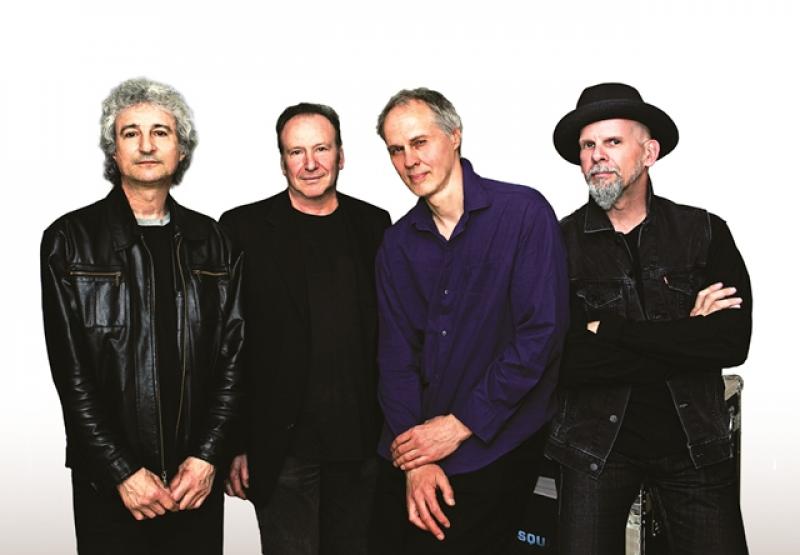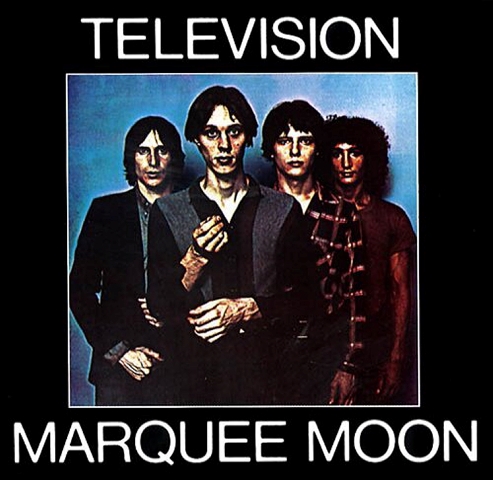Television, Roundhouse | reviews, news & interviews
Television, Roundhouse
Television, Roundhouse
Musical fireworks punctuate an erratic evening with New York’s guitar gods

The expected curveball came an hour in with a completely unfamiliar 14-minute song. Based around a pulsing bass riff, it was a deconstructed merger of The Rolling Stones’s “Paint it Black” and the Spanish side of Love’s Da Capo. A large contingent of the audience used it as handy toilet break.
Television were never going to play what amounted to the equivalent of a straight greatest hits set, although they came pretty close last night at the Roundhouse. There was no “Foxhole”, but “Elevation”, “Guiding Light, “Little Johnny Jewel”, “Prove it”, “Torn Curtain” and “See no Evil” were aired. The set climaxed with “Marquee Moon”, but the evening began with a few minutes of formless musical doodling which gave way to “Venus di Milo”.
 As the leader of one of the Seventies most distinctive and remarkable bands, Tom Verlaine can obviously do what he wants with his legacy and mess with expectations, but it’s impossible to avoid the thought that he was playing with the audience for his own amusement. Missing lines from the beginning of “Little Johnny Jewel” reinforced that impression.
As the leader of one of the Seventies most distinctive and remarkable bands, Tom Verlaine can obviously do what he wants with his legacy and mess with expectations, but it’s impossible to avoid the thought that he was playing with the audience for his own amusement. Missing lines from the beginning of “Little Johnny Jewel” reinforced that impression.
Verlaine appeared alongside fellow founder Billy Ficca (drums), long-time bass player Fred Smith – he replaced Richard Hell, and was in Blondie before Television – and co-guitarist Jimmy Rip, who superseded Richard Lloyd in 1997. Although the band first played live in 1974, they formed in 1973. This year marks their 40th anniversary. They split in 1978, reformed in 1992 and sporadic appearances have followed.
On record, with Marquee Moon in 1977 and Adventure the following year, Television were responsible for some of rock’s most beautiful music: soaring and imbued with a radiant, crystalline intensity. Their lyrics were inscrutably poetic and their guitar pyrotechnics meticulous yet technically superb and executed without flashiness. Live though, their reputation was less assured. When they first played Britain in 1977 they were criticised for being dull on stage.
Tom Verlaine might be living a form of Groundhog Day
At the Roundhouse, even after all these years, all sides of Television were on display. “Marquee Moon” was breathtaking, a journey to sonic heaven. “Elevation” had a translucent prettiness. “Torn Curtain” was heart-rending. “See No Evil” heart-stopping. Ficca is a great drummer: powerful and jazzy with no ostentation. But “Prove it” was sloppy and verged on the out of time. Rip is a consummate guitarist, but a rock edge in his playing nudges his contributions towards the conventional, an aspect these songs never had when they were originally recorded with Lloyd.
There was no such trouble with the capricious Verlaine. His initial concern was the row of press photographers in front of the stage. The first words he spoke were “Let’s say goodbye to all the photographers down here, photographers got to go.” They went. He began “Elevation”.
It’s possible the on-stage diversions may be a form of displacement activity – Verlaine might be living a type of Groundhog Day in which he has to play “Marquee Moon” endlessly. So far down the line, it’s unlikely he will ever be comfortable with his living legacy but thank God he hasn’t turned Television into a jukebox. Long may he remain this erratic.
Overleaf: listen to 'Marquee Moon'
Add comment
The future of Arts Journalism
You can stop theartsdesk.com closing!
We urgently need financing to survive. Our fundraising drive has thus far raised £49,000 but we need to reach £100,000 or we will be forced to close. Please contribute here: https://gofund.me/c3f6033d
And if you can forward this information to anyone who might assist, we’d be grateful.

Subscribe to theartsdesk.com
Thank you for continuing to read our work on theartsdesk.com. For unlimited access to every article in its entirety, including our archive of more than 15,000 pieces, we're asking for £5 per month or £40 per year. We feel it's a very good deal, and hope you do too.
To take a subscription now simply click here.
And if you're looking for that extra gift for a friend or family member, why not treat them to a theartsdesk.com gift subscription?
more New music
 theartsdesk on Vinyl 92: Marianne Faithful, Crayola Lectern, UK Subs, Black Lips, Stax, Dennis Bovell and more
The biggest, best record reviews in the known universe
theartsdesk on Vinyl 92: Marianne Faithful, Crayola Lectern, UK Subs, Black Lips, Stax, Dennis Bovell and more
The biggest, best record reviews in the known universe
 Blondshell, Queen Margaret Union, Glasgow review - woozy rock with an air of nonchalance
The singer's set dripped with cool, if not always individuality
Blondshell, Queen Margaret Union, Glasgow review - woozy rock with an air of nonchalance
The singer's set dripped with cool, if not always individuality
 Music Reissues Weekly: Chiswick Records 1975-1982 - Seven Years at 45 RPM
Triple-album 50th-anniversary celebration of the mould-breaking British independent label
Music Reissues Weekly: Chiswick Records 1975-1982 - Seven Years at 45 RPM
Triple-album 50th-anniversary celebration of the mould-breaking British independent label
 Album: Josh Ritter - I Believe in You, My Honeydew
The alt-country singer's latest isn't consistent but does hit highs
Album: Josh Ritter - I Believe in You, My Honeydew
The alt-country singer's latest isn't consistent but does hit highs
 Album: David Byrne - Who is the Sky?
Born to be weird
Album: David Byrne - Who is the Sky?
Born to be weird
 Edinburgh Psych Fest 2025 review - eclectic and experimental
Underground gems and established acts in this multi-genre, multi-venue day long festival
Edinburgh Psych Fest 2025 review - eclectic and experimental
Underground gems and established acts in this multi-genre, multi-venue day long festival
 Album: Faithless - Champion Sound
Three decades into their career the perennial dance duo nail a lengthy but likeable set
Album: Faithless - Champion Sound
Three decades into their career the perennial dance duo nail a lengthy but likeable set
 Album: Saint Etienne - International
British pop institution’s final communiqué is an unalloyed winner
Album: Saint Etienne - International
British pop institution’s final communiqué is an unalloyed winner
 Album: Brad Mehldau - Ride into the Sun
A sincere tribute to Elliott Smith
Album: Brad Mehldau - Ride into the Sun
A sincere tribute to Elliott Smith
 Music Reissues Weekly: The Outer Limits - Just One More Chance
Exhaustive anthology unearths the full story of the Sixties mod-pop band from Leeds
Music Reissues Weekly: The Outer Limits - Just One More Chance
Exhaustive anthology unearths the full story of the Sixties mod-pop band from Leeds

Comments
No biggie, but Rip actually